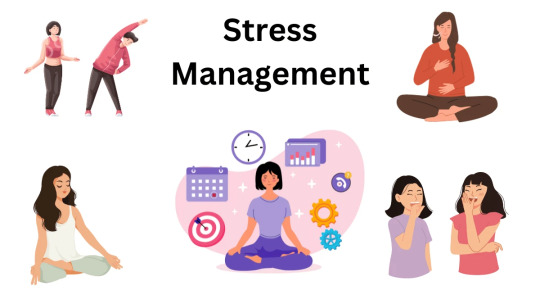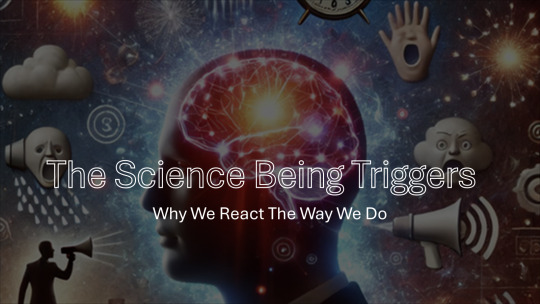#Cognitive behavioral techniques
Explore tagged Tumblr posts
Text
Stress Management and Language Learning
How Stress Affects Language Learning Stress management and language learning are intricately connected, with each influencing the other in significant ways. Understanding how stress affects language acquisition and implementing strategies to manage it can enhance the learning experience and lead to more successful outcomes. Stress can have a profound impact on language learning by increasing…
#Cognitive Behavioral Techniques#Effective Study Habits#Enhancing Cognitive Function#Healthy Lifestyle for Learning#Immersive Language Learning#Language Learning Apps#Language Learning Strategies#Mindfulness for Learning#Reducing Learning Anxiety#Stress Management Tips
0 notes
Link
Feeling like a fraud despite your accomplishments? You're not alone! Discover how to conquer Impostor Syndrome and thrive with tangible strategies and real-life advice in our latest article, "How to Overcome Impostor Syndrome and Thrive." Build lasting confidence and reclaim your success. 🌟 #OvercomingImpostorSyndrome #PersonalGrowth #ThriveWithConfidence
0 notes
Text
This morning, my therapist shared this really useful hack and I feel like it could be useful to share: it is the pie chart method.
Essentially, it is a great tool to identify the behaviours, situations and events that caused a certain effect, in order for you to truly understand what really happened.
You simply draw a circle, identify the circumstances that caused the outcome and give each situation a percentage of its influence on the outcome.
For example: you bake a cake but it turns out horribly. It could be that 45% of the fault could be given to the oven that has malfunctioned, 30% to the wrongly calculated measurements of the ingredients, and 25% of your inexperience baking a cake. In the end, you will realise that it may not be your fault, and therefore you should stop being so angry at yourself.
Disclaimer: sometimes the fault could be given to you. This is a useful method for those of you who may constantly be harsh to yourselves.
#reflection#alone but not lonely#creator of my reality#becoming her#high value mindset#becoming that girl#that girl#curator of my reality#levelling up advice#levelled up mindset#levelling up tips#self care#self worth#self love#self improvement#self help#mental health#becoming the best version of yourself#personal excellence#wonyoungism#wake up call#therapy#becoming better step by step#mental heath awareness#mental health techniques#selfcare#cognitive behavioral therapy#lamusedhermes mental health
46 notes
·
View notes
Text
Psychology: Understanding the Human Mind
Psychology is a fascinating field that delves into the intricacies of the human mind and behavior. From cognitive processes to emotional responses, psychology seeks to understand why we think, feel, and act the way we do.
Throughout my exploration of psychology, I’ve been particularly intrigued by concepts like motivation, personality, and mental health. Understanding psychological theories helps us comprehend our own behaviors and those of others, fostering empathy and improving our relationships.
Moreover, psychology’s application in various fields—education, therapy, and business—demonstrates its relevance in everyday life. By learning about psychological principles, we can equip ourselves to navigate challenges, enhance our well-being, and promote positive change in our communities.
#Psychology#Human Behavior#Cognitive Psychology#Emotional Intelligence#Mental Health#Personality Types#Motivation#Behavioral Psychology#Psychotherapy#Social Psychology#Psychological Theories#Mindfulness#Developmental Psychology#Neuroscience#Therapy Techniques#Coping Strategies#Psychological Disorders#Empathy#Positive Psychology#Psychological Research#new blog#today on tumblr
2 notes
·
View notes
Text
the phrase "it takes all sorts to make a world" has genuinely rewired the way i look at life. whenever i start to get insecure and compare myself to others i just think "well it takes all sorts to make a world" and realise that, actually, it's fine for my life to take a different path to that of others
#personal#mental health#mental wellness#coping#therapy#cognitive behavioral therapy#cbt techniques#coping strategies
5 notes
·
View notes
Text
What is Driving Anxiety? Causes, Symptoms, and Treatments
Driving anxiety can significantly impact daily life, causing serious mental health challenges. Various factors, including past traumatic experiences, visual impairment, accidents, aging, and specific phobias, can trigger this anxiety. Symptoms range from physical manifestations like sweating and increased heart rate to psychological issues such as fear of driving and panic attacks.
Effective treatments include setting realistic goals, understanding your anxiety, practicing relaxation techniques, and seeking therapy. Hypnotherapy and virtual exposure therapy can also be beneficial in managing and overcoming driving anxiety.
For more information on the causes, symptoms, and treatments of driving anxiety, click here.
#driving anxiety#causes of driving anxiety#symptoms of driving anxiety#treatments for driving anxiety#amaxophobia#fear of driving#hypnotherapy for driving anxiety#cognitive behavioral therapy#virtual exposure therapy#relaxation techniques#overcoming driving anxiety#mental health#Renewed Edge#driving phobia#anxiety management
2 notes
·
View notes
Text
if you have problems with being super avoidant because of trauma, it’s still your responsibility to learn how to have difficult conversations and deal with confrontation. that shit is stressful for everyone, but never working on those skills is only exacerbating the issue AND hurting the people around you who care about you and want to work things out and talk about things.
#once you hit a certain age it’s up to you to make that change#it’s not other peoples responsibility to initiate first every time#it’s not other peoples responsibility to get you to have heavy conversations instead of ignoring the topic entirely#please look into cognitive behavioral therapy and related techniques#or in the very least accept the fact that miscommunication is your fault for not communicating to begin with#i’m so tired of adults who won’t take any accountability for their actions and harmful behavior#go away fern
3 notes
·
View notes
Photo
This is literally how I deal with anxiety attacks, by the way. Express gratitude that your brain/body are trying to protect you, acknowledge that while you are grateful, you do not need this protection right now because you aren't in danger, and then gently try to let go of it. Takes long-term practice and repetition (and patience!), but it's been the number one most helpful thing for me.







Gratitude - Tidying Up With Marie Kondo (2019)
#you wouldn't normally notice that I am in fact diagnosed with GAD because I've gotten *very* good at this technique#basically I taught myself cognitive behavioral therapy skills from...checks notes. random Tumblr posts?#my mental health has rarely been better to be honest I highly recommend trying it and sticking with it for a while
388K notes
·
View notes
Text

#anxiété#anxiety attack#social anxiety#anxeity#psychotherapy#trauma coping#coping techniques#coping strategies#coping skills#mental ill meme#mental illness#tags for reach#mental health support#mental health awareness#mental help#cbt therapy#dbt skills#cognitive therapy#cognitive behavioral therapy#therapy#life skills#pass it on#pass it along#retweet
1 note
·
View note
Text
7 Stress Management Techniques That Really Work
Learn how to manage stress better with these proven techniques. Take control of your mental wellbeing now. Introduction Ever feel like stress is taking over your life? You’re not alone. Stress is an unavoidable part of life, but how you handle it makes all the difference. Learning effective stress management techniques isn’t just about feeling better—it’s about living better. Whether it’s work,…

View On WordPress
#Biofeedback#Burnout prevention#Cognitive-behavioral therapy (CBT)#Coping strategies#Deep breathing exercises#Emotional regulation#Guided imagery#Healthy sleep habits#Mental wellness#Mind-body connection#Mindfulness meditation#Nutrition and stress#Physical exercise#Progressive muscle relaxation#Relaxation techniques#Self-care practices#Stress management#Support groups#Time management skills#Work-life balance#Yoga for stress
1 note
·
View note
Text
The Psychology of Fear: How to Overcome Phobias Step by Step
Why Does Fear Feel So Powerful?Imagine being invited to a beautiful rooftop restaurant, but instead of excitement, you feel paralyzed. The thought of heights makes your heart pound and your stomach churn. Or maybe you avoid swimming pools because just the sight of deep water brings overwhelming dread.If you struggle with a phobia, you’re not alone. Millions of people battle intense fears that can…

View On WordPress
#anxiety relief#brain and fear#cognitive behavioral therapy#conquering fears#exposure therapy#fear management#mental health strategies#overcoming phobias#relaxation techniques#trauma recovery
0 notes
Text
Uzbekistan: Motivazione ed efficacia didattica nella psicologia pedagogica"
Abstract. Questo articolo studia la motivazione interna ed esterna degli studenti nel processo educativo, il loro atteggiamento verso le loro attività educative e il loro impatto sui loro risultati. Evidenzia inoltre l’impatto delle moderne tecnologie educative sulla motivazione e il ruolo degli insegnanti in questo processo. Introduzione Innanzitutto, è opportuno comprendere il concetto di…
#AK Markova#Alessandria today#Bruner theory#classroom motivation#cognitive motivation#digital education tools#education in the 21st century#educational psychology#educational success#effective learning processes#extrinsic motivation#Google News#internal drive#intrinsic motivation#italianewsmedia.com#Lava#learning environment#learning outcomes#lifelong learning#Maslow theory#motivation and behavior#motivation and cognition#motivation in learning#motivation in youth#motivational psychology#motivational techniques#negative motivation#pedagogical strategies#Pier Carlo#positive learning
0 notes
Text
The Science Behind Triggers: Why We React the Way We Do

View On WordPress
#awareness#behavioral triggers#behaviors#boundaries#cognitive triggers#content triggers#emotional triggers#environmental triggers#grounding techniques#healing#journal#mindfulness#physical triggers#physiological triggers#psychological triggers#relational triggers#sensory triggers#situational triggers#social triggers#throughts#triggers
1 note
·
View note
Text

In an era of constant change, digital noise, and relentless personal and professional challenges, more people are seeking ways to regain clarity, purpose, and inner strength. The answer lies not in external fixes, but in mastering the mind-and that’s exactly where psychological coaching comes in.
Do Visit: https://lawinspire.com/2025/03/10/mastering-the-mind-how-psychological-coaching-transforms-your-life/
#Psychological coaching#Mindset transformation#Life coaching benefits#Mental resilience training#Self-improvement through coaching#Emotional intelligence coaching#Personal growth strategies#Cognitive behavioral coaching#Overcoming mental blocks#Goal setting and achievement#How psychological coaching enhances personal and professional growth#Best mindset coaching techniques for success#The role of emotional intelligence in psychological coaching#How to rewire your brain for success with coaching#Transforming negative thinking through mindset coaching
1 note
·
View note
Text
Cognitive Behavioral Therapy for Tinnitus: How It Works and Why It Helps
Tinnitus isn’t just a sound; it’s an experience that affects sleep, focus, and mental well-being. Cognitive behavioral therapy (CBT) is a structured, evidence-based approach often recommended to help individuals reframe negative thoughts tied to their symptoms. Whether you’re struggling with frustration, anxiety, or sleep disturbances, CBT may offer relief by changing how you emotionally process…

View On WordPress
#behavioral therapy for tinnitus#cbt techniques for tinnitus#cognitive behavioral therapy and tinnitus#cognitive behavioral therapy cbt for tinnitus#cognitive behavioral therapy for tinnitus#tinnitus cognitive behavioral therapy
0 notes
Text
Persuasion
Persuasion is everywhere—ads, friends, and even parents! Learn how it works, how to spot tricks, and how to use it for good. A fun, simple guide for staying sharp and making smart decisions. #Persuasion #CriticalThinking #LifeSkills #FunLearning
“To swallow and follow, whether old doctrine or new propaganda, is a weakness still dominating the human mind.” — Charlotte Perkins Gilman, Human Work (1904) The Power of Persuasion Persuasion is all around us. Whether it’s a TV ad making you crave a burger, a friend convincing you to try a new game, or a parent encouraging you to eat vegetables, persuasion influences our choices daily. But…
#advertising tricks#attitude inoculation#audience awareness#behavior change#central route#childhood education#cognitive skills#communication skills#consumer awareness#critical thinking#decision-making#education#emotional appeals#fun learning#life skills#logical thinking#making smart choices#marketing strategies#media influence#media literacy#peer pressure#peripheral route#Personal Growth#persuasion#persuasion techniques#resisting persuasion#social influence#staying sharp#understanding persuasion
0 notes